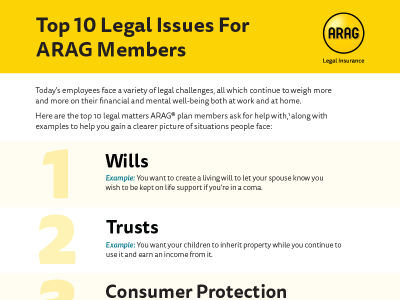The far-reaching impact of the coronavirus pandemic has forced us to reevaluate our current financial footing and potential legal needs. For example, more people are going online to create legal documents like a will, advanced healthcare directives or child medical consent form.
Keep in mind that important documents like these may need to be notarized to be legally valid. Fortunately, during these times of social distancing, remote online notarization (RON) is becoming an increasingly viable solution in many states.
A quick note about notary services
The act of notarization is the official process designed to deter fraud and assures the parties of a transaction that a document is authentic and can be trusted. There are generally three different ways to get a document notarized:
- Standard notarization requires you and any witnesses to appear physically before the notary public (a public official appointed by state government), provide proof of your identity and sign the document.
- Mobile notarization involves a notary public who is mobile and travels to clients’ locations to conduct the process.
- Remote online notarization (RON) authorizes a notary public to conduct notarizations from a remote location using audio/video technology and specific identification techniques.
Is RON available where you live?
In response to the coronavirus outbreak, the National Notary Association has outlined how several states have put emergency or temporary measures in place to help notaries carry out their duties. Many of these changes include implementing RON capabilities to increase accessibility and reduce time-consuming processes for citizens.
Additionally, recent legislative activity may impact people’s accessibility to RON. A bipartisan bill entitled “Securing and Enabling Commerce Using Remote and Electronic Notarization Act of 2020,” was introduced into Congress. The bill would authorize every notary in the United States to perform remote online notarizations.
Finally, if RON is not currently available in your state or you want to maintain social distancing, one option is to check with your local financial institution for assistance. Many banks and credit unions provide notarial service, which may currently be offered through the drive-up window.
A word or two about witnesses
In certain states, the notarization process requires a witness or witnesses. There are generally two types: a credible witness is used to identify the signer, and a signature witness is only present to witness the signing of the document. Some documents, like a deed, mortgage or deed of trust for mortgage requires a signature witness (or witnesses).
Witness orders can vary greatly from state to state, and several states have also changed the orders for remote witnessing on an emergency basis. The American College of Trust and Estate Counsel recently provided a summary of the updates. The organization indicates these are subject to change based on the rapidly changing laws due to the coronavirus outbreak.
More Resources
The National Notary Association can help you learn more about working with a notary and determine if your state offers RON.
How a legal plan can help
If you are an ARAG legal plan member, you can work with a network attorney over the phone or in person who can help you draft or review personal legal documents. They can also provide guidance regarding document notarization and witnessing procedures.



